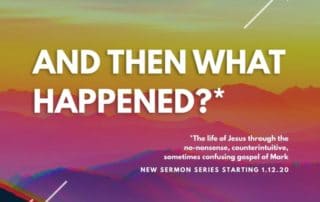Who is the Rejected Stone? | Mark 12:1-11; Psalm 118:22-23, Isaiah 5
Have you not read this Scripture: “‘The stone that the builders rejected has become the cornerstone; this was the Lord’s doing, and it is marvelous in our eyes’?” Mark 12:10-11
Our journey with Jesus with the disciple Mark has piqued my curiosity. Why did Mark pick these certain stories about Jesus? What about the order he put them in? What about these word pictures and quotes from the Old Testament? How about you? How curious would you consider yourself about the Bible, people and ideas?
The curious who sought Jesus had their whole world turned upside down. In parable after parable in the first ten chapters of Mark, Jesus challenged their thinking and traditions as he ministered. Now he’s changing up what he’s done even more by riding into Jerusalem in peace as King, and causing a scene clearing out the treachery in the temple courts. To begin these last few days of his life in Jerusalem Jesus speaks publicly with authority, on a few important topics, amazing all who listen. The first story is about a vineyard and the tenants. It’s a retelling of Isaiah 5, the same imagery: God the Father, Israel the tenants, the prophets rejected or killed. And when he quotes Psalm 118 for the punchline, his enemies know of what he’s accusing them.
Jesus makes the claim that he is the cornerstone from Psalm 118. The stone is a familiar image for God (Deut. 32:4, Psalm 18:31, Isaiah 17:10, 26:4, 20:29) and particularly how it points to the Messiah (Isaiah 28:16, Daniel 2:34-35,45, Acts 4:11, Eph 2:20). Jesus made it clear to the Jewish leaders (the builders) they had rejected him, and he became to them a stone of stumbling (Isaiah 8:14). The cornerstone is laid first at the head corner and governs every other corner and every angle in the entire building and thus determines the place every other stone is to be laid. Through his death, resurrection, and ascension, Jesus became the chief cornerstone of the spiritual temple, the church. As Acts 2:36 says: “God has made Him both Lord and Christ.” There is salvation in no one else. It is God’s doing, and it is marvelous. We can seek him, there are still more points of history and etymology of the word and idea of the cornerstone. Join me in seeking to know more of Jesus, the chief cornerstone.
By Donna Burns






